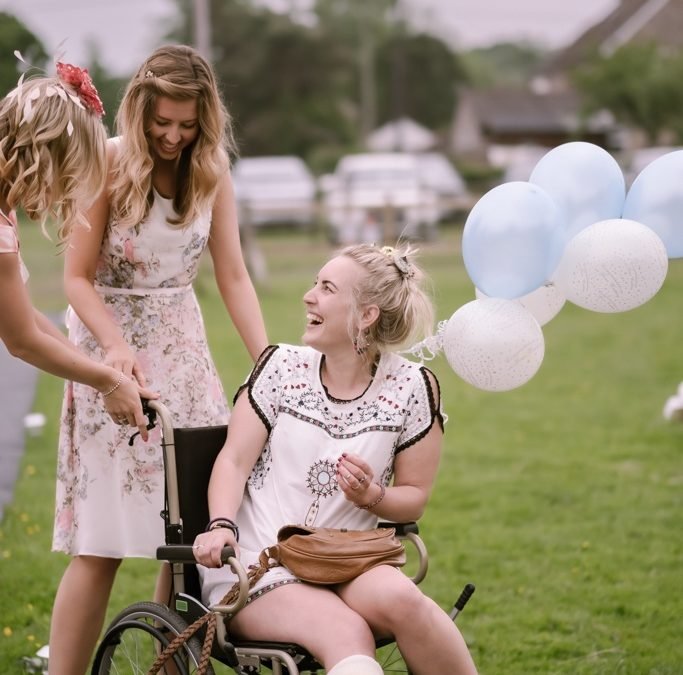Handle Wedding Day Emergencies with First Aid
Introduction
How do I handle wedding day emergencies: You’ve been planning your wedding day for months, carefully choosing the perfect dress, venue, and menu. The anticipation and excitement leading up to this special day is palpable, but it’s essential to be prepared for the unexpected. Wedding day emergencies can happen to anyone, but being equipped with the right knowledge and skills can make all the difference. In this article, we’ll cover how to handle wedding day emergencies using first aid, so you can turn potential disasters into minor hiccups.
Importance of First Aid on Your Wedding Day
We know No one wants to think about things going wrong on their wedding day, but the reality is that accidents and unforeseen events can occur. From minor injuries to health crises, knowing how to administer first aid can save the day and ensure that your celebration continues smoothly. By incorporating first aid into your wedding day preparations, you’ll be ready to handle any situation with confidence and grace.
The Right Knowledge and Skills
We should think about Emergencies at the wedding can range from small cuts and bruises to more serious incidents such as an allergic reaction or a guest experiencing a heart attack. Regardless of the situation, being able to provide basic first aid can potentially save lives and make a world of difference. Enrolling in a first-aid course before your big day will help you feel prepared and empowered, allowing you to focus on the celebration.
Assembling a First Aid Kit
How to I handle wedding day emergencies: Every wedding should have a well-stocked first aid kit on hand, so you can quickly address any medical emergencies that may arise. Make sure to include items such as adhesive bandages, gauze, antiseptic wipes, pain relievers, and any specific medications that you or your guests might require. A comprehensive first aid kit can be a game-changer when it comes to preventing minor injuries from turning into major problems.
When to Call for Professional Help
While having first aid skills and a stocked kit can make a significant impact, it’s essential to recognize when professional help is needed. If someone is experiencing severe symptoms or if you’re unsure of how to handle a particular situation, don’t hesitate to call for medical assistance. It’s always better to err on the side of caution and ensure the safety and well-being of everyone involved.
Tackling Common Wedding Day Emergencies with First Aid
1. Cuts and Scrapes
Quick action: Small cuts or scrapes can be a common occurrence at weddings, especially when preparing the venue or handling sharp objects like knives or broken glass. To address these minor injuries, clean the wound with mild soap and water, apply an antiseptic, and cover it with a sterile adhesive bandage. In case of a more severe cut, applying direct pressure to the wound with a clean cloth or gauze can help control bleeding until professional help arrives.
2. Allergic Reactions
Be prepared: Allergic reactions can happen suddenly and range from mild to severe. Make sure to inquire about any allergies among your guests beforehand and have antihistamines and an epinephrine auto-injector (EpiPen) in your first aid kit. In case of an allergic reaction, help the affected person administer the medication, and call for professional help if the symptoms are severe.
3. Burns
Act fast: Burns can happen when handling hot items like candles, sparklers, or even heated dishes. For minor burns, run cool water over the affected area for several minutes to help reduce pain and swelling. Avoid applying ice or butter, as these can cause further damage to the skin. Cover the burn with a sterile, non-adhesive bandage and consider taking over-the-counter pain relievers if needed. For more severe burns, seek professional medical assistance immediately.
4. Fainting
Stay calm: Fainting can occur due to factors such as overheating, dehydration, or stress. If someone faints, assist them in lying down with their legs elevated to improve blood flow to the brain. Loosen any tight clothing and ensure they have adequate air circulation. Once the person regains consciousness, encourage them to drink water or a sports drink to help with rehydration. If the individual doesn’t regain consciousness within a few minutes, call for professional help.
5. Choking
React quickly: Choking is a serious emergency that requires immediate action. If someone is choking, ask them if they can speak or cough. If they cannot, perform the Heimlich maneuver by standing behind the person, placing a fist just above their navel, and giving quick, upward thrusts until the object is dislodged. If the person becomes unconscious, begin CPR and call for professional help.
6. Sprains and Strains
Provide support: Sprains and strains can happen easily, especially when dancing or moving around in unfamiliar footwear. To treat a sprain or strain, follow the RICE method: Rest, Ice, Compression, and Elevation. Encourage the person to rest, apply ice wrapped in a cloth to the injured area, use a compression bandage to reduce swelling, and keep the affected limb elevated. Over-the-counter pain relievers can also help alleviate discomfort. If the pain or swelling doesn’t improve, seek professional medical advice.
Wrapping Up: First Aid for Wedding Day Emergencies
Just think about things as we reach the conclusion of our comprehensive guide on handling wedding day emergencies, it’s important to reflect on the key takeaways and how they can help make your special day as seamless and enjoyable as possible. Armed with first aid knowledge and a well-stocked first aid kit, you can confidently tackle any unexpected events that may arise during your wedding celebration.
The Value of First Aid Preparedness
Empowerment through knowledge: First and foremost, learning first aid through a first-aid course empowers you to take control of any emergencies that may occur on your big day. From minor cuts and burns to more serious incidents like allergic reactions or choking, knowing how to administer first aid can be a lifesaver in a critical situation.
Building a safety net: Having a comprehensive first aid kit on hand ensures that you’re equipped to handle a wide range of medical emergencies. From basic items like adhesive bandages and antiseptic wipes to more specialized items like epinephrine auto-injectors, a well-stocked kit provides a safety net for you and your guests.
The Importance of a Support Network
Delegate responsibilities: While it’s crucial for you to be knowledgeable in first aid, it’s also important to involve your wedding party and support network in your emergency preparedness plans. Assign key roles to your bridesmaids, groomsmen, or family members, ensuring that multiple people are trained in first aid and know the location of your first aid kit.
Communication is key: Make sure to communicate with your wedding vendors and venue staff about your emergency preparedness plans. They may have their own first aid resources or protocols in place, which can complement your efforts to keep everyone safe.
Final Thoughts
Therefore in conclusion, preparing for wedding day emergencies with first aid training and supplies is an essential aspect of your wedding planning process. While no one wants to think about the possibility of things going wrong, being proactive in your approach can make all the difference when it comes to ensuring a smooth, memorable celebration.
Keep in mind, it’s better to be prepared and not need it than to be caught off guard in the face of an emergency. So, enroll in a first-aid course and assemble a comprehensive first aid kit today. With the right knowledge and tools at your disposal, you’ll be ready to tackle any challenges that may arise, allowing you to focus on what truly matters—celebrating your love and commitment with your partner, surrounded by friends and family. Perhaps think about insurance too!

